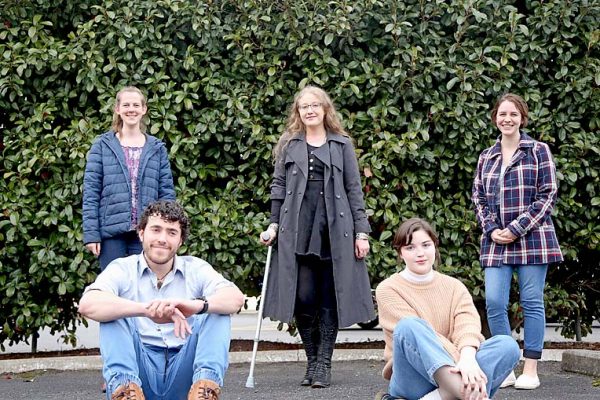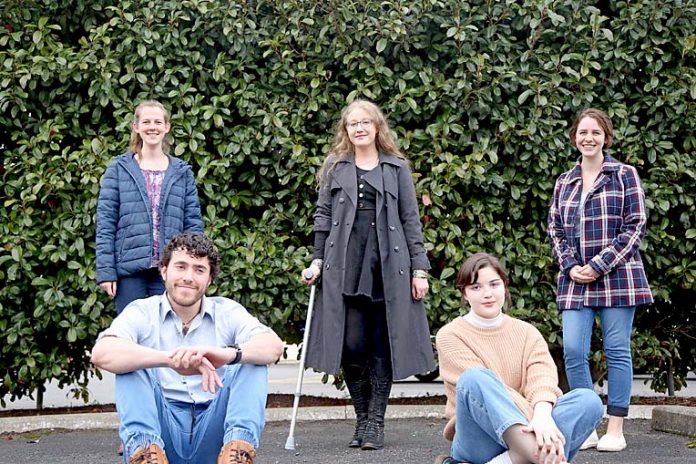
A GROUP of Limestone Coast youth are hoping to sow the seeds for a community-wide shift in attitudes towards people with a disability and chronic illness through a proposed program for primary and high school students.
Lily Coote, Ally Finnis, Lucy Williams, Shanae Coppick, Georgia Thompson, Tessa Deak, Brady Pahl and Amechai Bawden have applied for a grant to roll out the Just Relax program, an initiative aimed at educating students on disability, accessibility and inclusion.
The group will channel its lived experience with disability and chronic conditions and engage with young people to change the thoughts and language around the subject.
Group member Ally said the objective of the program was to empower students not only to see the change that needs to happen, but to be the change.
“All of us live with some sort of chronic illness and or disability and we have found that out in the world, there’s a lack of awareness and we want to do something to change that,” she said.
“Going into schools and talking to primary and high school students is a really great way to do that because those children are going to grow up already aware and will be better equipped to consider the needs of people with disabilities and chronic illnesses.
“We as young people felt if our peers and teachers had been more aware, we would have had better experiences and people would have been able to work with any needs we had.”
If the grant application is successful, the group will provide primary and high school students with an insight into the diverse experiences of people living with a disability.
The group plans to start with a pilot program targeting Year 4 to 10 students, comprising of a presentation by speakers with lived experience and disability-related simulations.
Schools in the Mount Gambier and Penola district are flagged as the pilot sites, with a view to expand to other locations based on the success of the program.
“The simulations are about helping kids understand what it is like to have certain disabilities,” Lily said.
“We are going to have a wheelchair and students will have the opportunity to both push themselves and be pushed while navigating an obstacle course.
“We hope to help them understand how difficult it can be to navigate your average environment which is probably not designed for wheelchairs.
“There will be glasses that simulate different forms of vision impairment and a sensory overload video.”
Initially driven by the desire to create physically inclusive spaces within the community, Tessa said the group turned its focus to re-framing the conversation and recognising societal attitudes, practices and structures could provide innovative solutions to local issues.
“We thought getting into schools and starting from the root of the issue with children when they are still learning would be really effective,” she said.
“Kids are generally really curious and really do want to understand.
“A big part of the program is invisible illnesses, because 90pc of disabilities are hidden and we want to make them visible.”
The program will culminate with a brainstorming session to consider ways accessibility or inclusion can be improved in their school and broader community.
“People with disabilities and chronic illnesses struggle can struggle at school and it can lead to a lot of things like depression and loneliness,” Amechai said.
“If you are able to help the person’s experience, it can help them in the long run.”
The group will find out later this year if the grant application has been successful and will implement the program in schools next year.
“These are youth-specific programs that need youth to educate people on,” Georgia said.
“We want kids to understand that just because this person has a certain illness or disability, it does not mean they are confined to that as an identity.
“People have separate identities to their illness or disability and we want to show kids we can do other things and still be successful people.”








